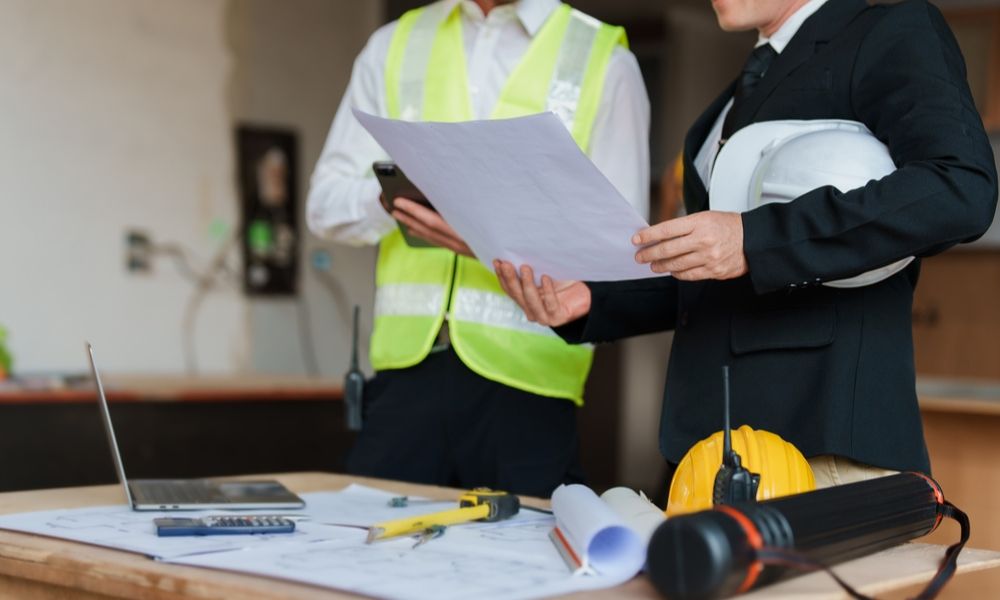A Bill of Quantities (BoQ) is an essential document in the construction industry, detailing the materials, labor, and costs required for a project. While the BoQ serves a similar purpose in both residential and commercial projects—facilitating budgeting, procurement, and project planning—the specifics of each vary significantly. Understanding these differences is crucial for accurate budgeting and efficient project management.
We’ll explore the key differences between BoQs for residential and commercial projects, covering factors such as project complexity, materials, labor requirements, and risk considerations. This guide will help quantity surveyors, contractors, and project managers adapt their approach to BoQ preparation based on project type.
Bills of Quantities
A Bill of Quantities (BoQ) is a document used in construction to outline the quantities of materials, labor, and resources required for a project, along with associated costs. It serves as a critical tool for budgeting, tendering, and resource planning. The BoQ allows project owners, contractors, and stakeholders to understand the financial requirements and allocate resources effectively.
While both residential and commercial projects utilize BoQs, the document is tailored to meet the specific needs and complexities of each project type. Understanding these differences can lead to better cost control and project outcomes.
Overview of Residential vs. Commercial Projects
Residential and commercial construction projects have different goals, scales, and requirements. A residential project typically involves building homes, apartments, or smaller-scale properties, focusing on comfort, design, and affordability. Commercial projects, on the other hand, include office buildings, shopping centers, hotels, and warehouses.
These projects often require larger budgets, more complex designs, and specialized materials to support higher usage and durability.
Due to these fundamental differences, the BoQ for each type of project differs significantly. Let’s delve into the key areas where residential and commercial BoQs vary.
Key Differences in BoQ for Residential and Commercial Projects
Scope and Complexity
Residential BoQ: Residential projects are generally smaller in scope and complexity compared to commercial projects. The BoQ for a residential project may cover standard construction phases such as foundations, framing, roofing, and interior finishes. Residential BoQs are often simpler and may not require specialized categories for unique project needs.
Commercial BoQ: Commercial projects are usually larger and more complex, requiring detailed BoQs that cover multiple phases, sections, and specialized requirements. For instance, a commercial BoQ may include separate sections for structural steel, HVAC systems, and fire safety installations. The increased scope necessitates a more comprehensive approach to quantity takeoff and cost estimation.
Materials and Specifications
Residential BoQ: In residential projects, materials are often chosen for their aesthetics, comfort, and affordability. Residential BoQs will include materials like wood, drywall, flooring, and standard fixtures. Material choices may vary depending on the project’s quality level—luxury homes versus affordable housing, for example.
Commercial BoQ: Commercial projects prioritize durability and functionality due to high traffic and usage. Commercial BoQs include materials like reinforced concrete, steel, specialized insulation, and commercial-grade fixtures. These materials meet higher standards to withstand wear and tear, impacting both quantity and cost in the BoQ.
Labor Requirements
Residential BoQ: The labor required for residential projects typically involves tradespeople like carpenters, plumbers, and electricians, focusing on standard residential construction methods. Labor costs in residential BoQs are usually based on traditional hourly or daily rates for each trade, with fewer specialized skills required.
Commercial BoQ: Commercial projects often require specialized labor, including engineers, steelworkers, and technicians for complex systems (e.g., HVAC, fire safety, and elevators). Labor costs in commercial BoQs are generally higher, accounting for specialized skills, certifications, and potentially longer project durations.

Cost Estimation and Pricing
Residential BoQ: Cost estimation for residential BoQs is often based on local market rates for materials and labor, with pricing considerations focused on cost-effectiveness and aesthetics. Residential projects tend to have smaller budgets, so BoQs for residential projects emphasize affordability and efficiency.
Commercial BoQ: Commercial projects involve higher budgets and more complex cost estimation processes. In addition to materials and labor, commercial BoQs must account for higher standards, compliance with stricter regulations, and specialized construction techniques. As a result, cost estimation for commercial BoQs is more detailed and may involve complex pricing strategies.
Risk and Contingencies
Residential BoQ: Residential projects are generally lower in risk and therefore may have smaller contingency allocations in the BoQ. The typical contingency rate for residential BoQs is around 5-10% of the total project cost, depending on factors like project scale and location.
Commercial BoQ: Commercial projects have higher risk levels due to their size, complexity, and regulatory requirements. Commercial BoQs often include larger contingencies (10-20%) to account for unforeseen events, delays, or cost fluctuations. Additional risk management strategies may also be outlined in the BoQ to ensure financial stability.
Challenges in BoQ Preparation for Residential and Commercial Projects
Both residential and commercial BoQ preparation come with challenges:
- Accurate Quantity Takeoff: Quantity takeoff accuracy is essential for both project types but can be more complex for commercial projects due to the variety of materials and systems involved.
- Time-Consuming Process: Preparing detailed BoQs can be time-consuming, especially for commercial projects. Advanced tools like digital takeoff software can help streamline this process.
- Market Fluctuations: Both residential and commercial projects are impacted by material price fluctuations. Regularly updating BoQs is essential for accurate budgeting.
Best Practices for Preparing BoQs for Different Project Types
To prepare BoQs effectively for residential and commercial projects, consider the following best practices:
Use Digital Tools
Digital tools like Bluebeam, Cubit, or Procore can streamline BoQ preparation, reduce errors, and save time. They enable precise digital takeoffs and facilitate collaboration among project stakeholders.
Customize the BoQ Format
Ensure that the BoQ format is tailored to the project type. Residential BoQs may have a simpler format, while commercial BoQs should include additional sections for specialized systems and components.
Account for Regulatory Requirements
Commercial projects are subject to stricter building codes and regulations. Make sure to include any regulatory compliance costs in the BoQ for commercial projects.
Include Contingencies for Each Project Type
Allocate appropriate contingencies based on the project type and its unique risks. A smaller contingency may be sufficient for residential projects, while commercial projects should have larger contingency allocations.
Conclusion
Understanding the differences between residential and commercial BoQs is essential for quantity surveyors, contractors, and project managers aiming to manage project costs effectively. From project complexity and material specifications to labor requirements and risk management, each BoQ is tailored to address the unique needs of the project type.
By adapting BoQ preparation strategies to the nature of the project, construction professionals can improve budgeting accuracy, enhance project planning, and reduce financial risks. For those looking to gain expertise in BoQ preparation and quantity surveying, a dedicated course can provide the skills needed to succeed.
Start Your Journey in Quantity Surveying
Ready to take your knowledge of Bills of Quantities to the next level? Our Online Quantity Surveying Course is designed to equip you with essential skills in BoQ preparation, cost estimation, and project budgeting for both residential and commercial projects.
Why Enroll in Our Course?
- Comprehensive Learning Modules: Get in-depth knowledge of BoQ preparation for different project types.
- Expert Instruction: Learn from professionals with hands-on experience in quantity surveying.
- Practical Applications: Apply your skills to real-world projects, mastering the art of accurate BoQ preparation.
Enroll today and start your journey toward a successful career in quantity surveying!




